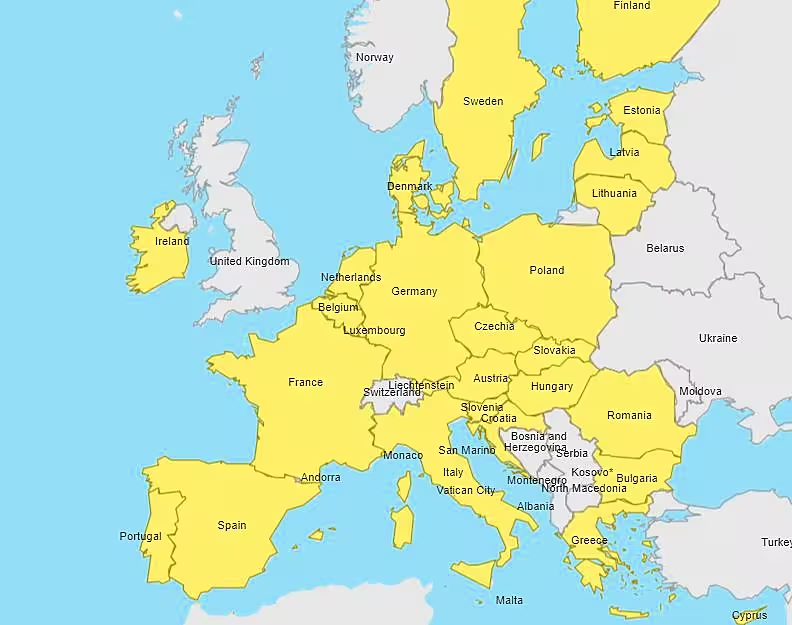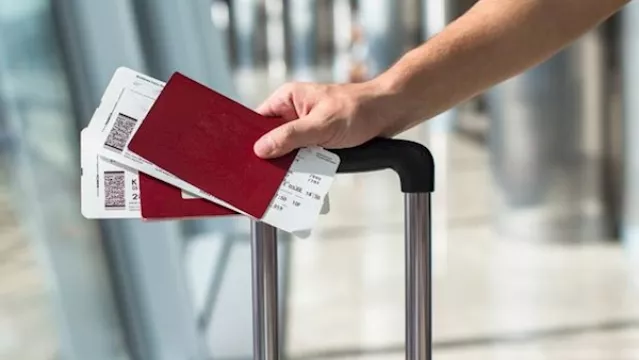The easing of Covid-19 restrictions over the past few weeks has brought much more optimism regarding our options for this summer.
With one in five Irish consumers planning to book a holiday abroad this year according to data from the Competition and Consumer Protection Commission (CCPC), the EU's 'digital green certificate' system is looking like a ticket out of here.
Officials are hopeful travel among EU member states will be permitted in the coming months, but how does the new system work, and when will it be brought in?
What is the new system being considered?
The new system hopes to allow for greater travel between EU member states by allowing EU citizens the ability to gain a certificate, free of charge, prior to their journey.
Under the proposed measures, people will be able to gain a certificate if they meet any one of the three specified criteria:
- They can provide proof they have been fully vaccinated against Covid-19.
- They have recently tested negative for the virus prior to their journey.
- They have recently recovered from the virus, and therefore should have a level of immunity.
The official European Commission website states national authorities will be responsible for the certificates, meaning countries could allow for hospitals, test centres or health authorities to issue the certs.
Those who have a certificate would not be required to isolate upon arrival, which would be more conducive to non-essential journeys, such as holidays.
Will any Covid vaccine do?
All vaccines approved by the European regulator, the European Medicines Agency (EMA) are approved for the digital green certificates.
Currently, the EMA has approved four vaccines for use in the EU; Pfizer/BioNTech, AstraZeneca/Oxford, Moderna and Johnson & Johnson (Janssen).
However, the Commission website states individual member states may also decide to allow for the certificate's benefits to extend to passengers vaccinated with other jabs, even ones not approved by the EMA.
An example of this is the Sputnik V vaccine which is currently being assessed as part of a rolling review by the EMA, but which has already been approved and is being administered in Hungary and Slovakia.
Does this mean you won't be able to travel if you don't meet the travel certificate criteria?
People wishing to travel who do not meet any of the three qualifying factors to receive a digital green certificate will likely be subject to the individual member state's existing quarantine and/or testing requirements.
As these requirements are not under the EU's digital green certificate system, they will likely vary depending on the country you are travelling to and from.
When will the system be adopted?
The new travel system has been approved by EU leaders, but member states will need time to prepare the logistical rollout of the certificates, including how they are issued and verified.
The EU Commission is also working set-up a digital infrastructure to facilitate the authentication of the certificates.
The system is due to come into effect on July 1st, at which time member states will have six weeks to join, meaning all participating countries will reopen to EU travellers from July/August.
Speaking from Brussels on Tuesday, Taoiseach Micheál Martin said its "full steam ahead" for the new system, which is expected to be adopted here by mid-July.
Who will be able to get these certificates and where can we go?
All EU citizens who meet the criteria, travelling between participating member states, will be able to receive a certificate.
It has not yet been determined whether non-EU citizens resident in an EU member state will be included in the new system, or people resident in the EU on international visas.

In terms of where passengers can go, it may depend on what EU member states decide to sign up to the new system and how quickly they adopt it.
What about the UK?
Again, thanks to Brexit, the UK is no longer part of the EU and therefore is not involved in the digital green certificate system. However, in spite of that, Ireland's Common Travel Area (CTA) with the UK still exists.
Amid fears of the more contagious UK variant at the start of this year, the Government increased measures for passengers arriving from Britain, now requiring them to present a negative PCR result and self-quarantine, but with the UK's vaccination progress, this may soon change.
Earlier this month, Tánaiste Leo Varadkar said the CTA would be reopened as a first step in the resumption of international travel, but added that such a move would likely be made in July or August.
Tourism and transport groups have urged the Government to reduce restrictions on passengers coming from the Britain as the hospitality and accommodation sectors reopen, and an update may be offered later this week following a Cabinet meeting which is due to discuss international travel.







